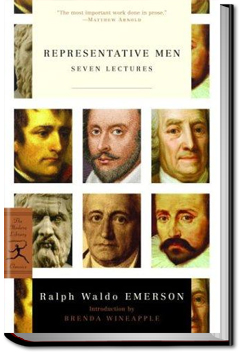

What moderation, and understatement, and checking his thunder in mid volley! He has good-naturedly furnished the courtier and citizen with all that can be said against the schools. "For philosophy is an elegant thing, if any one modestly meddles with it; but, if he is conversant with it more than is becoming, it corrupts the man." He could well afford to be generous,—he, who from the sunlike centrality and reach of his vision, had a faith without cloud. Such as his perception, was his speech: he plays with the doubt, and makes the most of it: he paints and quibbles; and by and by comes a sentence that moves the sea and land. The admirable earnest comes not only at intervals, in the perfect yes and no of the dialogue, but in bursts of light
Get ALL YOU CAN BOOKS absolutely FREE for 30 days. Download our FREE app and enjoy unlimited downloads of our entire library with no restrictions.
Have immediate access and unlimited downloads to over 200,000 books, courses, podcasts, and more with no restrictions.
Everything you download during your trial is yours to keep and enjoy for free, even if you cancel during the trial. Cancel Anytime. No risk. No obligations.
For just $24.99 per month, you can continue to have unlimited access to our entire library. To put that into perspective, most other services charge the same amount for just one book!

As avid readers, we understand the joy of immersing ourselves in a captivating story or getting lost in the pages of a good book. That's why we founded All You Can Books back in 2010, to create a platform where people can access an extensive library of quality content and discover new favorites.
Since our founding days, we’ve continuously added to our vast library and currently have over 200,000 titles, including ebooks, audiobooks, language learning courses, podcasts, bestseller summaries, travel books, and more! Our goal at All You Can Books is to ensure we have something for everyone.
Join our community of book lovers and explore the world of literature and beyond!
What are his ideas and how does he express them? Emerson is the principal proponent of Transcendentalism, which can be profitably described as idealism -- where, cribbing from German Idealism, Platoni